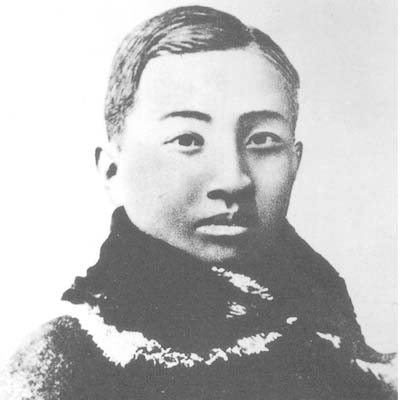Peng Jia Zhen (彭家珍) of Jin Tang (金堂) municipality in Sichuan (四川) province enrolled in the Sichuan Defense Preparation School to specialize in the armed forces and armaments. He joined the Chinese Tong Meng Hui (同盟會), a revolutionary organization against the Manchu Dynasty formed by Sun Yat-sen in Tokyo, Japan. His father wrote him several times to urge him to come home and get married. He simply replied: “The Xiongnu (northern barbarians, which refer to the Manchurians) are not yet annihilated, how can I start my own family?”
The Manchu government disintegrated soon after the Xinhai Revolution of 1911. However, the diehard forces of Liang Bi (良弼) still attempted to put up a last-ditch struggle. Taking advantage of the situation, Yuan Shi Kai (袁世凱), who controlled the military and political power of the Manchu government, also attempted to grab power for himself.
Peng Jia Zhen, together with some revolutionaries of Beijing and Tianjin, plotted to get rid of Liang Bi, Yuan Shi Kai and Zai Ze (載澤) in order to push the early realization of the republic. In a farewell letter to his family before this mission, Peng Jia Zhen wrote: “If the republic succeeded, it is my glory even if I die; if the republic fails, it is an insult even if I live. Instead of living with insult, I would rather die with glory.”
On Jan. 25, 1912, after he grasped the whereabouts of Liang Bi, Peng Jia Zhen wrote his will and bade his comrades farewell. The following evening, he bombed Liang Bi near his residence, severely wounding him. Liang Bi died after two days. Unfortunately, Peng Jia Zhen sacrificed himself; he died on the spot. With Liang Bi’s assassination, the diehards of the royal court soon dispersed as they rushed to escape for their lives. On Feb. 12, the emperor of the Manchu Dynasty abdicated.
Pen Jian Zhen’s courageous action and sacrifice accelerated the eventual doom of the Manchu Dynasty, making it the last imperial regime in China.
Categories
Sacrificing self to save the Republic
